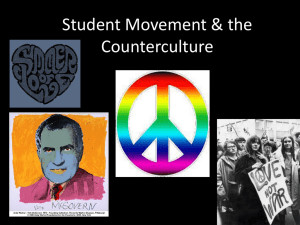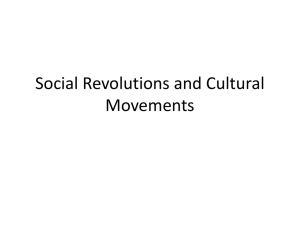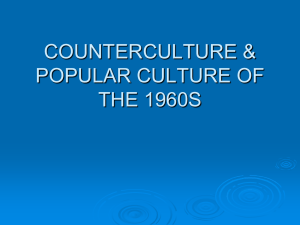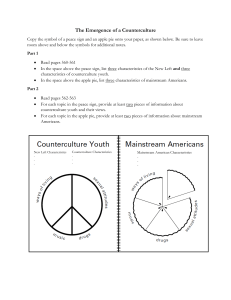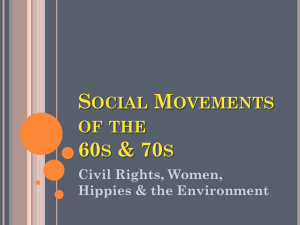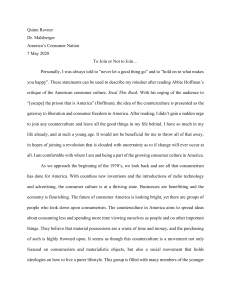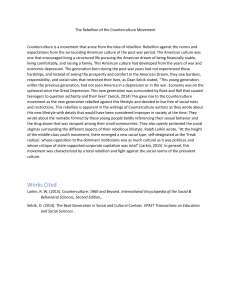Chapter 17 Short Answer Essays Were the changes
advertisement
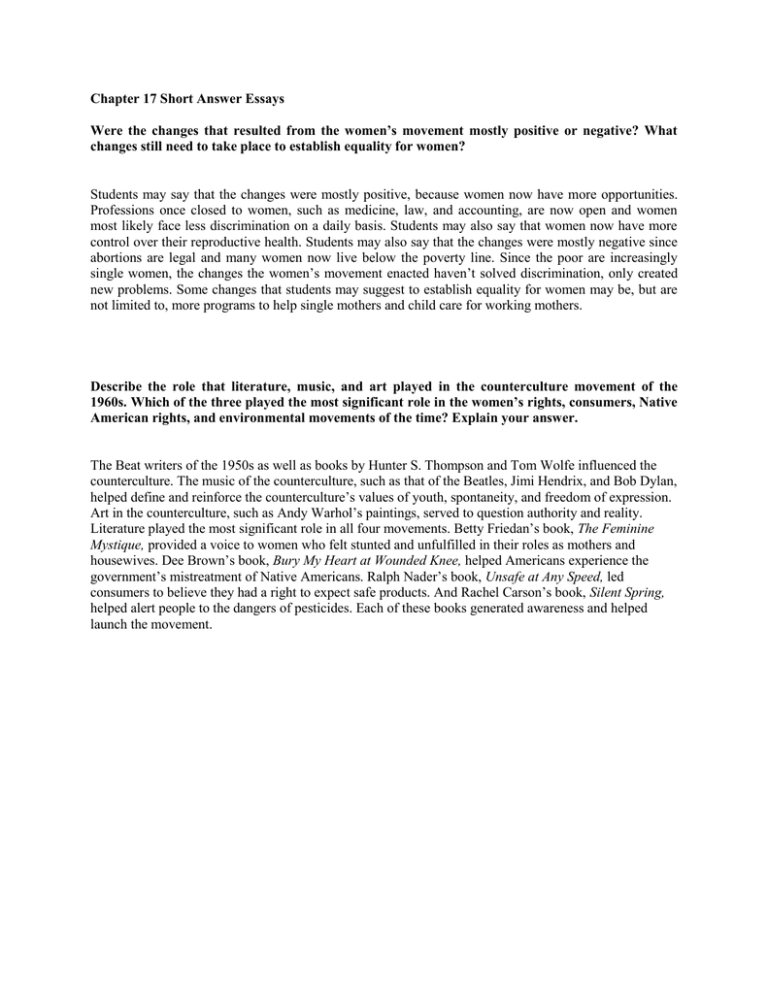
Chapter 17 Short Answer Essays Were the changes that resulted from the women’s movement mostly positive or negative? What changes still need to take place to establish equality for women? Students may say that the changes were mostly positive, because women now have more opportunities. Professions once closed to women, such as medicine, law, and accounting, are now open and women most likely face less discrimination on a daily basis. Students may also say that women now have more control over their reproductive health. Students may also say that the changes were mostly negative since abortions are legal and many women now live below the poverty line. Since the poor are increasingly single women, the changes the women’s movement enacted haven’t solved discrimination, only created new problems. Some changes that students may suggest to establish equality for women may be, but are not limited to, more programs to help single mothers and child care for working mothers. Describe the role that literature, music, and art played in the counterculture movement of the 1960s. Which of the three played the most significant role in the women’s rights, consumers, Native American rights, and environmental movements of the time? Explain your answer. The Beat writers of the 1950s as well as books by Hunter S. Thompson and Tom Wolfe influenced the counterculture. The music of the counterculture, such as that of the Beatles, Jimi Hendrix, and Bob Dylan, helped define and reinforce the counterculture’s values of youth, spontaneity, and freedom of expression. Art in the counterculture, such as Andy Warhol’s paintings, served to question authority and reality. Literature played the most significant role in all four movements. Betty Friedan’s book, The Feminine Mystique, provided a voice to women who felt stunted and unfulfilled in their roles as mothers and housewives. Dee Brown’s book, Bury My Heart at Wounded Knee, helped Americans experience the government’s mistreatment of Native Americans. Ralph Nader’s book, Unsafe at Any Speed, led consumers to believe they had a right to expect safe products. And Rachel Carson’s book, Silent Spring, helped alert people to the dangers of pesticides. Each of these books generated awareness and helped launch the movement.
